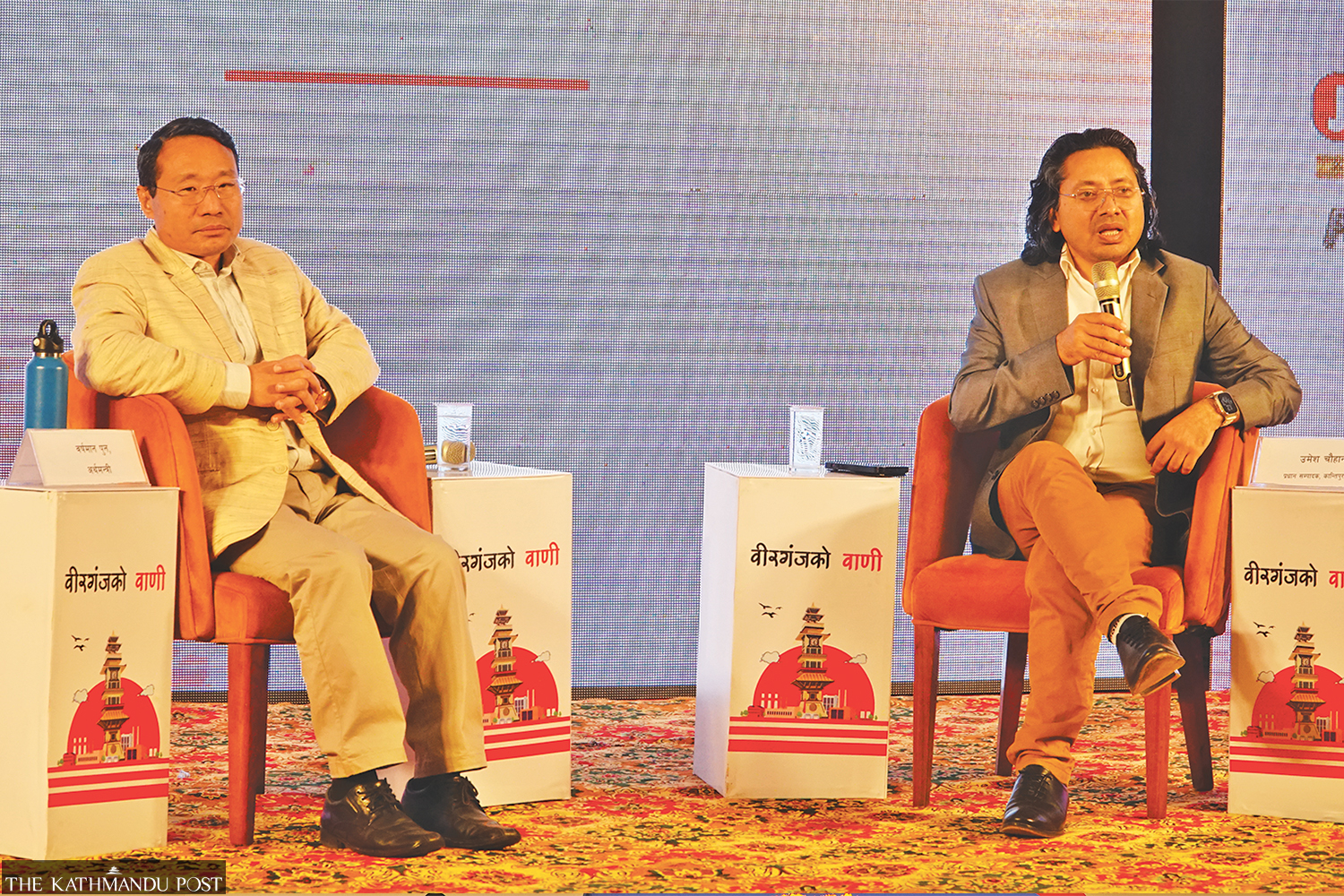Money
Nepal proposes mutual customs assistance with India
Agreements will allow for exchange of information, intelligence, and documents, ultimately helping the countries prevent growing customs offences.
Post Report
Nepal has proposed a customs mutual assistance arrangement with India, the largest trading partner, to simplify trade-related activities between the two countries.
The agreements will allow for the exchange of information, intelligence, and documents, ultimately assisting the countries in the prevention and investigation of customs offences.
“We have proposed the arrangement. Once the agreement is signed between the countries, it will significantly reduce leakages,” said Ram Prasad Ghimire, revenue secretary of the Ministry of Finance.
He was addressing a panel discussion entitled ‘Voice of Birgunj’, organised by the Kantipur Media Group on Saturday, in Birgunj.
According to him, a separate integrated revenue policy will be prepared for the upcoming fiscal year. “There might be some weakness in revenue policy which we believe has caused an economic slowdown. If there is something like that, it can be reviewed.”
Traders in Birgunj said that revenue leakage has thrived due to growing malpractices.
Anil Agrawal, president of the Birgunj Chamber of Commerce and Industry, said Nepal’s customs imposes a 50 percent penalty if the invoice bill does not match the customs evaluation book.

“To dodge the 50 percent penalty, entrepreneurs and traders are submitting wrong invoices,” said Agrawal, speaking at the third session of the discussion entitled ‘Stable Policy to Uplift the Economy.’
“Despite submitting real invoices issued by India, the customs does not approve it. It evaluates under the book valuation of its own,” Agrawal said. “The customs rules change frequently, on a monthly basis. Corruption has also increased,” he said.
Nepal has banned the import of dried peas. “As India imports dried peas on zero duty, it is then reexported to Nepal,” Agrawal said.
“Why would the government impose a ban on edible goods,” he asked. The government needs to bring a policy that encourages trade through legal channels.”
Responding to Agrawal, Ghimire said that the government has been coordinating with its different bodies and the private sector to ease customs-related difficulties.
Kul Man Ghising, managing director of Nepal Electricity Authority, speaking in the first session titled ‘Industry and Trade, Where is the Infrastructure’, said that the authority has prepared a master plan for the industrial corridor in nearly a dozen cities on electricity demand projections.
“Birgunj and Hetauda are among the clusters with a demand for more than 3,000 MW electricity by 2050. We have started building 400 kV and 200 kV power transmission infrastructure that will have higher capacities to ensure reliabille power supply in the future,” Ghising said.
“The construction work has started. A sub-station is under construction in Parsauni for the same purpose,” Ghising said. “To meet the electricity demand in Birgunj, we have invested Rs20 billion in infrastructure that includes transmission lines, substation and distribution networks,” he said. It would take around 3–4 years to complete the projects.
Agrawal said there is a need to boost the confidence of entrepreneurs and industrialists to do business and trade. Currently, the private sector has lost confidence and factories are shutting down one after another.
“The industries that are operating are also running below 20-25 percent capacity. There is a massive lay-off. Some factories have completely shut down and thrown many people out of jobs," Agrawal said.
Lawmaker Anil Rungta, who is also an industrialist, speaking at the first session of the event, said, “Until there is a stable government and policy, it is useless to expect the industry sector to improve.”
“The policy changes with the change in government. The industrial and economic policies need to be stable for at least 5 to 10 years.”
Rungta said that the industries in Birgunj are operating at 20 percent capacity due to the lack of electricity. “Due to an unscientific tax system in food industries, they are unable to operate in a full-fledged manner.”
Maha Prasad Adhikari, the governor of Nepal Rastra Bank, speaking in the third session, said that in the past few years, the demand has declined overall, resulting in a decline in credit demand as well.

“The capacity utilisation of large industries has declined to 35–40 percent. When the capacity utilisation declines by 35–40 percent, the demand for credit falls by 60 percent,” Adhikari said. “When the demand is low in the market, the money remains in banks,” he said.
“We can look at this situation positively also. It means that whenever the state needs money to spend or the private sector needs it in the future, we have ample liquidity,” Adhikari said.
“The economy is dependent on remittances, bank’s liquidity increases if remittances come, revenue collection increases if the import increases,” Adhikari said.
“So it is important to focus on the internal economy and production. Unless we are able to strengthen our external sector by exporting goods, the cycle of liquidity crunch and liquidity excess will continue,” Adhikari said.
Industrialists from Birgunj lamented that the working capital guidelines have created a negative business environment.
In response, Adhikari said the working capital guidelines were introduced so that credit does not get misutilised and does not hurt industry entrepreneurs if they do not use loans against the stated purpose.
Damodar Bhandari, the minister for industry, commerce and supplies, said the government was amending laws to encourage industrial development and to draw foreign direct investment.
In the first session, lawmaker Pradeep Yadav asked why the government does not make a development package for Birgunj.
“Birgunj is always ignored despite being the country’s main trade gateway,” said Yadav. Birgunj has not been announced as an industrial city, he said.
Responding to Yadav, Bhandari said that the federal government was ready to declare Birgunj an industrial city.
In terms of electricity development, according to Ghising, they have opened bids to produce 200 MW of solar energy in Birgunj, among the plan to produce 2,200 MW of solar energy nationwide. The energy-mix policy would assure electricity during the dry season when hydro capacity drops.
Ghising also requested the industry entrepreneurs of Birgunj not to be discouraged by the current electricity deficit in industrial areas as it was temporary. The electricity generation is increasing and next year 600 MW energy will be added to the national grid, he said.




 8.54°C Kathmandu
8.54°C Kathmandu













